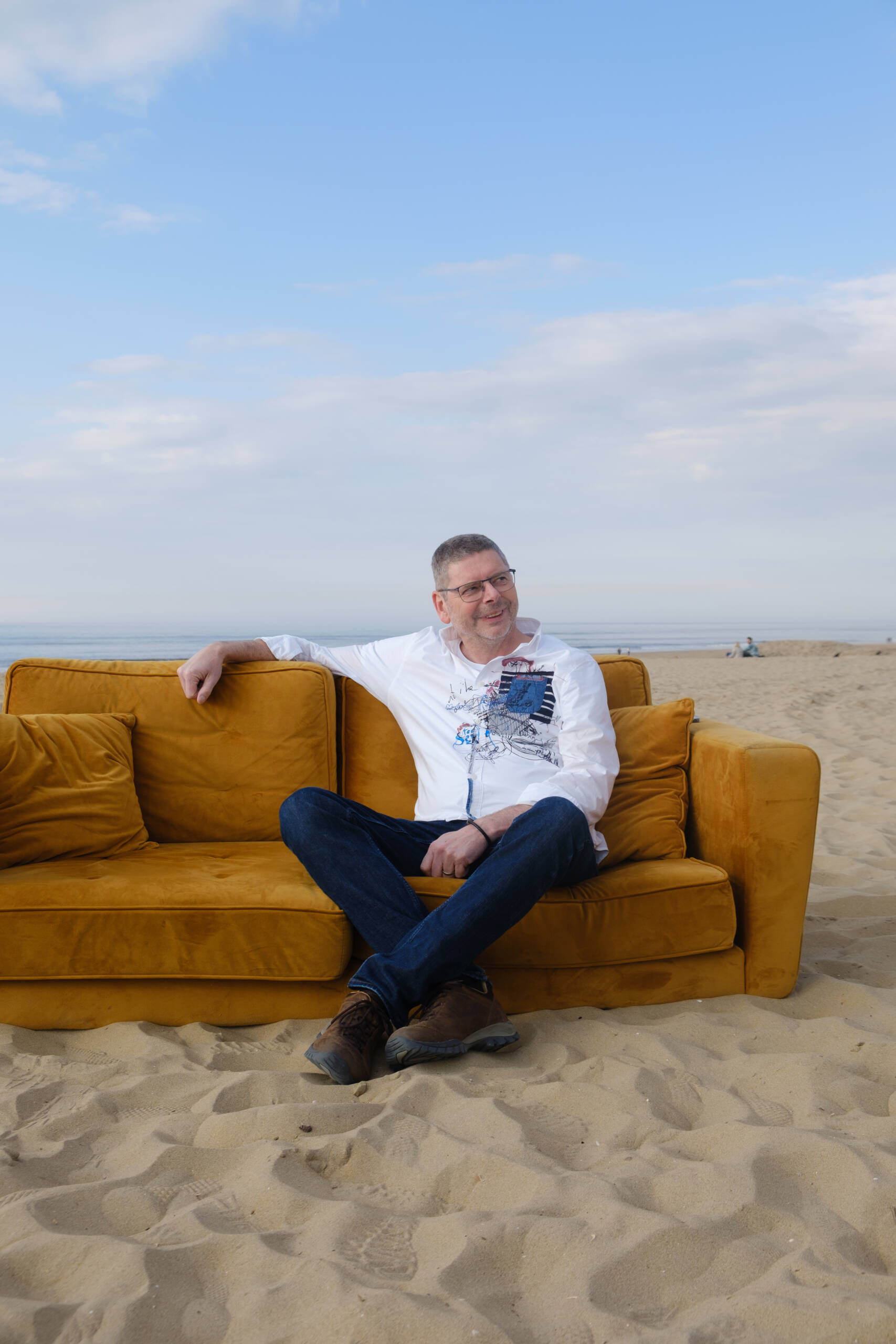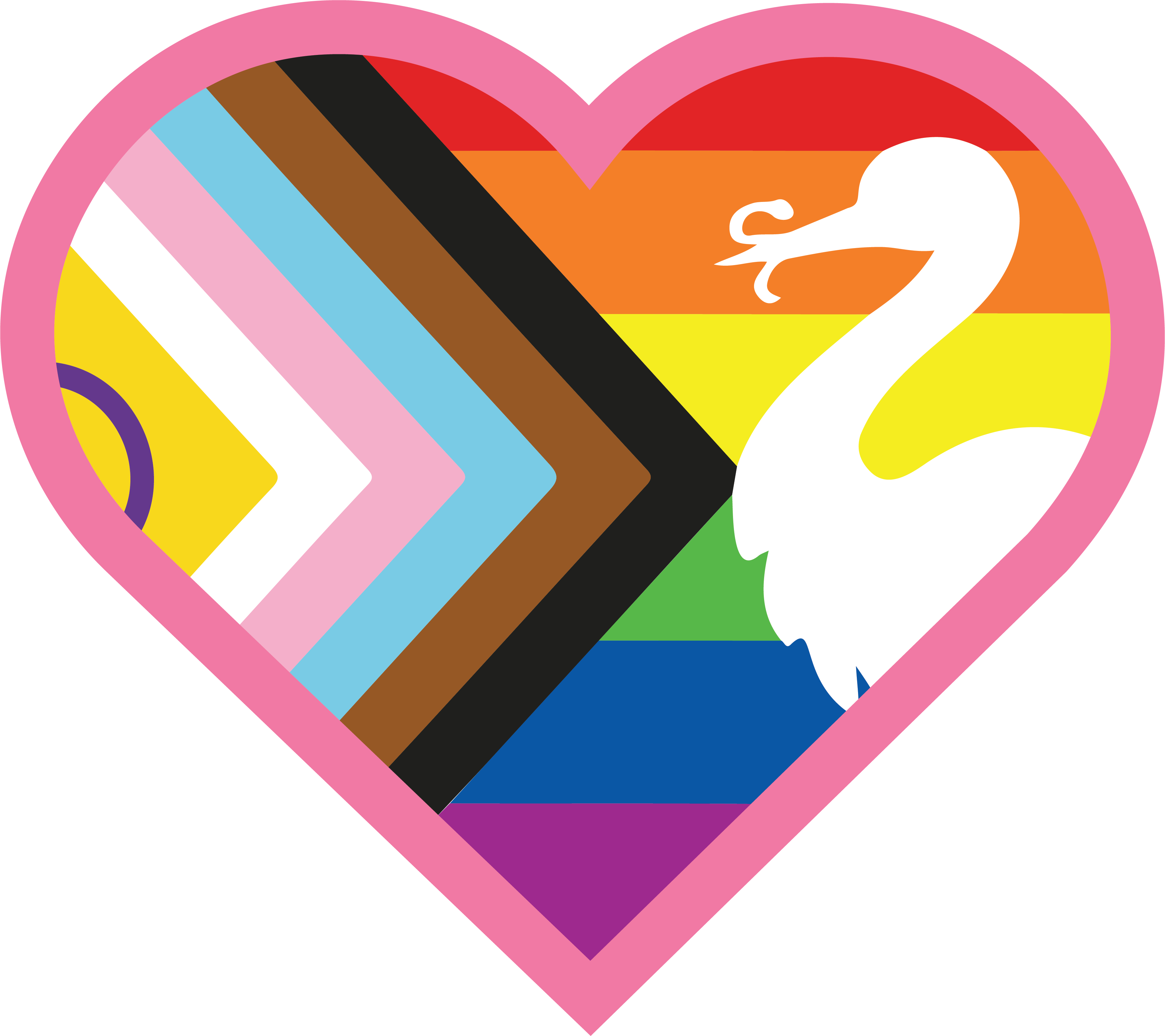In the context of Pride The Hague 2025, stories are shared from people from the queer community of The Hague. Ron’s story is one of quiet strength, honesty, and resilience. Growing up in a small village, he struggled with being gay in an unwelcoming environment. Now, decades later, he shares how he found safety, community, and the courage to live openly. Through his work in mental health care and recovery, he supports others navigating their identities — especially those who don’t always see themselves represented in the spotlight.
Watch the video here or read his story below.
What does Pride mean to you?
Pride, to me, is about being proud. I’m 59 now, but during my adolescence, I didn’t want to be gay at all. I was bullied a lot and deeply humiliated. As a result, I tried to convince myself—and the world—that I wasn’t gay. I even entered a relationship with a young woman. We were together for five years. But after that, I fell into a very deep depression.
At the time, I had hardly any gay role models. I didn’t know anyone who was openly gay. And I was so scared—because I come from a small village in Limburg. That wasn’t a pleasant place to be queer.
I think young queers really need to know older people who are gay and have managed to build a life with a partner. That kind of visibility and sense of safety is so important. And no matter how scared I’ve been, I eventually found the courage to come out and be myself. I’ve gone through a real identity crisis—and I wouldn’t wish that on anyone.
Why is Pride The Hague important to you?
The Hague is my home. I’ve lived here for about 18 years, and what’s most important to me is that home feels safe. I want to contribute to making The Hague a safe place for queers—for people like me. That includes visibility. That’s what Pride The Hague is about. It’s the moment to show the world: we’re here, and we’re not going anywhere.
How do you celebrate your identity?
There are, of course, many sides to identity beyond being gay. But being gay is a very important part of who I am. The way I embrace that part of myself is simply by living my life: having a partner, being accepted by our families, having good friends, and living the way we want.
I really enjoy wearing an earring. I remember a time, long ago in Limburg, when it mattered which ear you wore it in—left or right could signal something. It’s a small detail, but I like subtle signals. I’m more of an introvert. People often tell me, “We never noticed.” And that’s the point. I just want to live my life peacefully.
What would you tell your younger self?
I only came out when I was 27, after a heavy identity crisis and depression. And I really believe no one should have to go through that alone. I wish I had sought out people with similar experiences sooner. My advice: find people you relate to—people you feel safe with. Nowadays, I live by a personal motto: “You have to do it yourself, but you don’t have to do it alone.” Together, we are truly stronger.
I work at a recovery academy in Rotterdam. And we still feel the need to open our doors to those struggling with their identity and orientation. I encourage everyone to explore and connect with people who make them feel safe. It makes coming out so much easier.
Another piece of advice: don’t take your own thoughts too seriously. I’ve always been a worrier. I imagined all the worst-case scenarios. And some of them came true—my coming out wasn’t easy. But life goes on. Your fears stop at the worst-case scenario, but life continues. You can talk again. Eventually, things even got better with my parents, though it took years. If I had known where I’d end up, I wouldn’t have let fear rule me for so long.
Where do you feel most at home?
I feel most at home among people where I feel safe. Fortunately, we have a wonderful family and great friends. My partner and I have been together for 13 years now. Just being able to live our lives without feeling unsafe—that’s what matters most.
How do you feel during Pride? What are your fondest memories of Pride celebrations?
The most impressive Pride I’ve ever experienced was the Gay Games in Amsterdam in 1998. I was working in hospitality at the time and was part of the FNV union. We organized a congress on work and homosexuality, so I didn’t see much of the Games themselves. But the atmosphere in Amsterdam was unforgettable. Everywhere—city center and beyond—there were Pride flags. The vibe was so warm, so different. It felt like a queer utopia. Like we weren’t a minority anymore. That left a deep mark on me. I still feel it when I talk about it.
Why did you want to share your story today?
I’m actually quite introverted. I don’t like being on camera or drawing attention. I prefer to blend in. But I believe it’s important to share stories. Young people still in the closet need to see that there are different kinds of role models—not just the loud or visible ones. Some of us are quiet. Some of us just want to live.
And we all deserve someone we can see ourselves in.
I work in mental health care, and we see it again and again: personal stories matter. That’s where people find strength. That’s where they see role models. That’s where hope begins.
So I believe in telling real stories. Because those are the ones that help people heal.
Want to share your own story? Click here for more information.





